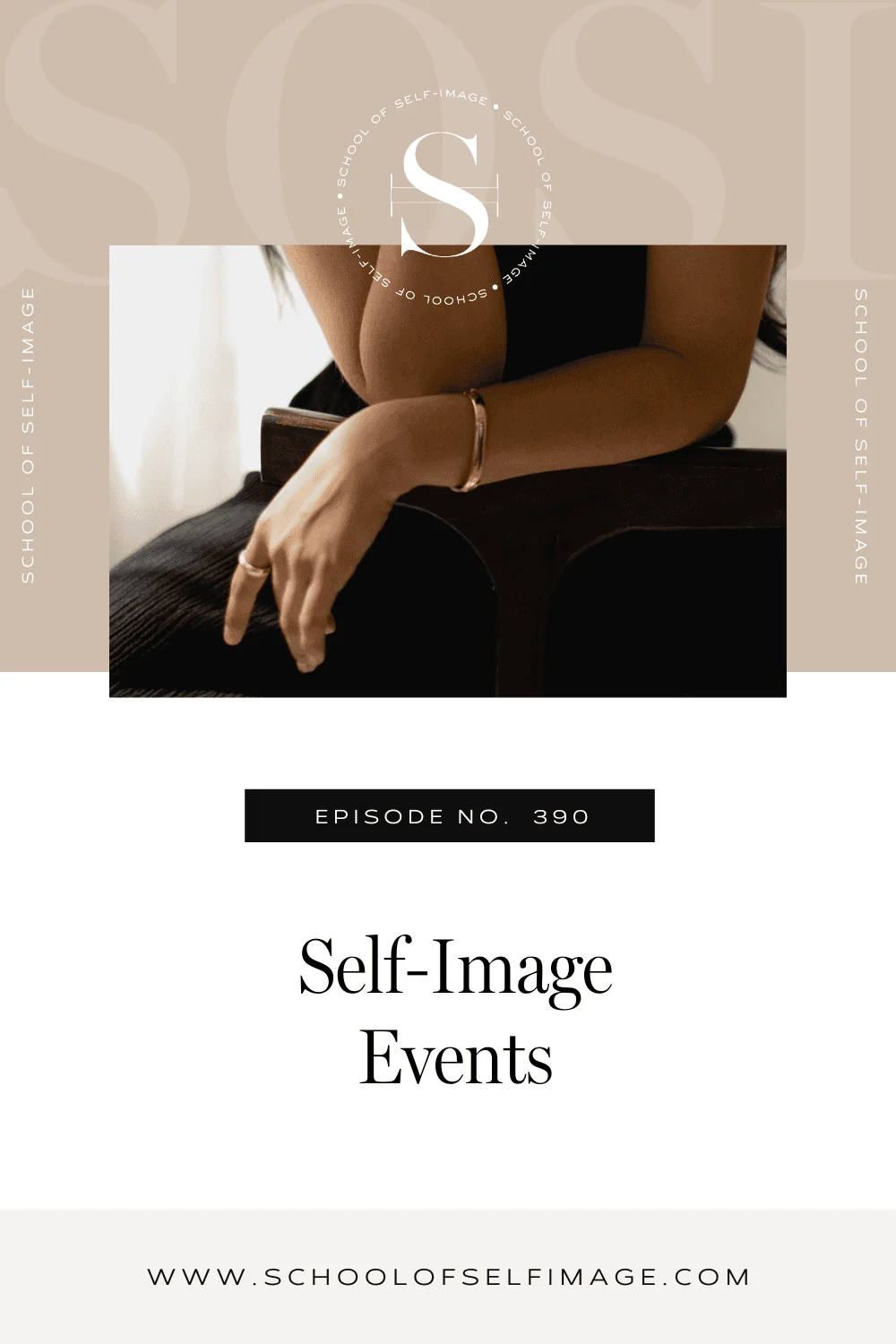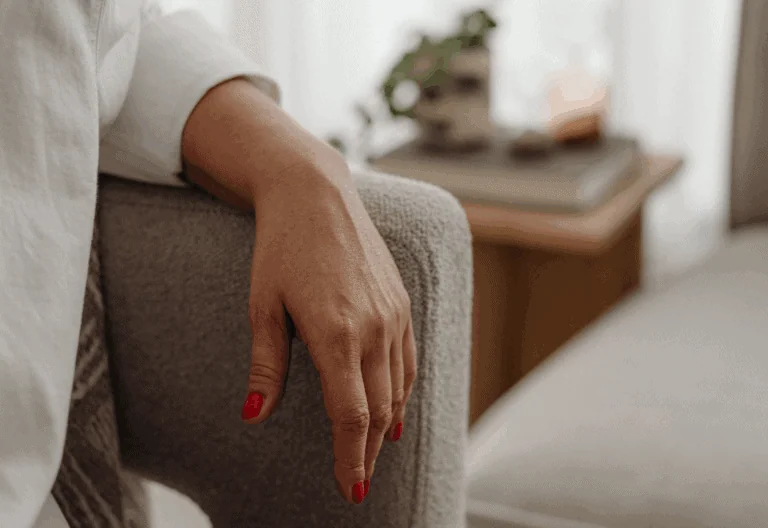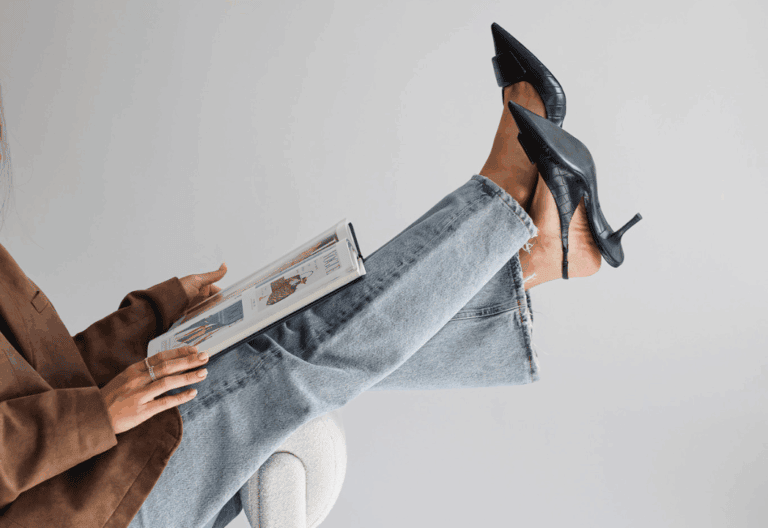

Creating Intentional Self-Image Events for Personal Growth
Self-image events play a crucial role in shaping our identities, as discussed in the podcast episode. These events can be intentional or unexpected, and reflecting on both types from our past is essential for personal growth and self-awareness.
Intentional self-image events are experiences or activities that we consciously choose with the purpose of changing our self-image and identity. Tonya Leigh explains that by setting extraordinary goals and immersing ourselves in new environments, we challenge our existing beliefs, push beyond personal boundaries, and facilitate the development of new skills and perspectives. These intentional events are designed to push us out of our comfort zones and help us evolve into a new way of being in the world. Embracing intentional self-image events can be a catalyst for personal development and lead to a more empowered and fulfilling life.
Join in to explore how moments, both intentional and unexpected, shape our identities and help us evolve personally.
Episode Details:
02:58 – Understanding Self-Image Events
04:03 – Childhood and Self-Image Formation
06:09 – Conflicting Identities: Pageants and Church
07:03 – Overcoming Negative Self-Image from Bullying
08:05 – Gaining Power Through Understanding Self-Image
10:02 – Adult Unexpected Self-Image Event
12:10 – Cognitive Dissonance and Self-Image
14:08 – Adapting Self-Image to New Realities
17:13 – Negative Self-Image Events and Recover
19:00 – Compassion in the Face of Self-Image Challenges
20:05 – Creating Intentional Self-Image Events
27:45 – Intentional Self-Image Events for Future Growth
Useful Resources:
- FREE training: https://schoolofselfimage.com/powerfully-ever-after/
- FREE download: https://schoolofselfimage.com/self-image-manifesto/
- Sign up for the weekly Edit: https://schoolofselfimage.com/edit
Connect with Master Life Coach Tonya Leigh:
- Website: https://schoolofselfimage.com/
- Instagram: https://www.instagram.com/schoolofselfimage
- Facebook: https://www.facebook.com/TonyaLeighOfficial
- TikTok: https://www.tiktok.com/@thetonyaleigh
- YouTube: https://www.youtube.com/@schoolofselfimageOfficial
Episode Transcript:
Have you ever wondered how certain experiences can profoundly impact the way you see yourself and the world around you? Well, that’s what we’re talking about in today’s podcast. We are going to explore the power of these moments, both intentional and unexpected, and how they shape our identities and help us grow personally. So, let’s dive in.
Welcome to the School of Self-Image, where personal development meets style. Here’s your hostess, master life coach, Tonya Leigh.
Hello, my friends. Welcome back to the podcast. I don’t know about you all, but I am loving this spring weather here in Charlotte. It is so beautiful. And it’s not too hot yet. Things are blooming. We are getting ready to move into the house, which is super exciting. So, my environment right now is a little bit chaotic because I have boxes everywhere and it’s that awkward in-between. I talk a lot about this within the School of Self-Image membership, but I feel that in my own life right now, it’s like that space between where you were and where you’re going. And it’s messy, it’s chaotic, but it’s necessary for change. And so, I’m experiencing that right now in my environment. It’s very awkward to look around and see a little bit of chaos.
But I’m embracing all of it because life is not always neat, and organized, and beautiful. Life is about all of it. And I’ve just come to the understanding that embracing that is the secret to true fulfillment. We don’t have to fight the awkward in-between. In fact, the more you fight it, the more you stay in it. So, I’m just embracing all of it right now. And also being really excited to get settled. I haven’t been settled in a long time. In fact, I would say it has been over a decade since I have felt settled. And I’ve chosen that intentionally. I have loved the freedom of not owning a home up until now. I have loved the travel, I’ve enjoyed all of it. But I’m at a season in my life where I just want to settle. I want to nest. I want to just be in a place for a bit.
Now, that doesn’t mean I’m not going to travel. I will travel because I love traveling. But right now I want to travel to this new house and just take a deep breath and really take it in. Over the past week, I’ve been thinking about this concept of self-image events. These are the events that happen in our lives that shape our identity and we’ve all had them. And I think it’s really powerful to look at them and to ask yourself, were these intentional events that I created for myself on purpose? Or were these unexpected self-image events? Because what I’ve realized is that a lot of people have just experienced many unexpected self-image events, things that they would not have chosen for themselves, and they continue to live in that identity.
If you think back to being a child, you were told certain things, you were treated certain ways, and those events shaped your identity. And a lot of people without this awareness that you can actually reshape your self-image. They just continue to allow the world to shape them versus them shaping themselves on purpose. To do this exploration, it’s essential that you go back to your childhood, and you look at the events that you can pinpoint that shaped you. And hopefully you’ll find positive experiences. But you’ll also, most likely, if you’re human, find negative childhood experiences that shaped your identity. And it’s important for you to understand how your identity has been created. So, when I think back to my childhood, one of the biggest negative experiences that I can pinpoint was the experience of being raised in a Pentecostal Holiness Church, where I experienced a lot of guilt and a lot of shame on a regular basis. I always felt like I was sinning and I was going to go straight to hell.
And that shaped an identity of a woman who’s anxious, a woman who always feels like she’s not doing enough, she’s not good enough. And just having that awareness of where those thoughts and beliefs about myself came from has been truly powerful, because now I realize that I can reshape that. Now, on the other hand, one of the events that had a positive impact on my self-image was being in beauty pageants. Now, there was a negative aspect to that and that was feeling like you are in competition with other girls. You are constantly comparing yourself. And so, that was not the positive part. The positive part for me was getting up on stage and being comfortable being seen. Being comfortable getting up there and felling and realizing that I survived it, not being afraid to get up and do my Liza Minnelli cabaret and miss a note. It had a very positive impact on me.
Now, I know some people have questioned this, so I’m going to go ahead and address this right now. I’ve heard people ask the question, how is it that you were raised in a Pentecostal Holiness Church and yet you did pageants? And that’s a really great question. It was very confusing even to me. On one hand, in the church, I wasn’t allowed to wear makeup. I could not wear swimsuits in mixed company. There were a lot of things that were forbidden in my religion. But then once or twice a year, I got to participate in these more worldly events called pageants. So, when I think about this through the lens of self-image events and how those two extremes shaped me, it’s fascinating because what it led to was me being willing to be seen, but me also feeling like I was always doing it wrong, that it was never good enough, that somehow I was going to be punished for it.
And then you throw in the event of me getting beat up in my freshman year of high school by a group of girls who cornered me in the bathroom after I had won a pageant and they were making fun of me. And it becomes so clear. I realize now why when I first started my business, it felt very unsafe. I thought women are going to come after me and I was never doing it good enough. And I felt like I was always going to get in trouble. And yet I had evidence that I could be seen, that I had the ability to fail, that I could get up on stage and perform, and talk, and be very visible, and yet I was going to get in trouble for it. And so, when I first started my business, I didn’t have the awareness that I have now as to why it felt so hard.
But now that I’ve processed this and I understand these events and how they shape me, that’s when I got my power back. I now had this understanding that it was just this scared little girl in me trying to protect herself from the world. But as the adult me, I’ve got me. I was just coaching someone in the membership the other day and I’m like, “Listen, the work that we’re doing is about you being the protector of yourself, so that scared part of you feels safe, because she knows that the adult part of you has got your back.” Because as an adult woman, not that a group of women could not come and beat me up, because it could still happen, but the likelihood of that happening is very slim. The closest I’ll come to that most likely are a bunch of anonymous women online talking about me behind my back. And that’s a whole different podcast episode.
And I know that I can handle that because I have processed and I understand these self-image events. Now, it’s not that it doesn’t trigger that part of me, but I now have the tools to navigate it. And so, when you think about your childhood experiences, think about the specific events that shaped your identity. Who did you become as a result? And I want you to look for the positive too, because a lot of times when we’re doing this work, we only want to look at the negative because that is usually what screams in our heads. That’s usually the part that’s like, “I need to protect myself from the world.” But you’ll also find some positive experiences. Maybe it was a teacher that you had that told you that you were an amazing student or how smart you were. Maybe it was a vacation that you went on with your family and how you started to see yourself differently as a result.
So, look for those events in your childhood that shaped your identity. The next self-image events that I encourage you to look at are the ones that you experience as an adult that were unexpected. These are the ones that come along and oftentimes rock our world, because we didn’t have a plan for them, we didn’t know they were coming around the corner, and they changed our identities. For some of you, it could be losing a job. Maybe you became pregnant unexpectedly. Maybe you received a life-altering diagnosis. On the other hand, maybe it was a life-changing conversation. You met someone and they said something that challenged your own identity, that challenged the way you see the world. Or maybe it was coming into money unexpectedly. I had that happen to a friend. Unbeknownst to her, she was in her uncle’s will. And when he passed, she found out that she was a millionaire. Was very, very unexpected.
It could be an opportunity that comes along that you didn’t expect that changes you. A great example of this is years ago, I was asked to be a part of the Monaco Luxury Network, which was a think tank for luxury brands. And just being offered that, knowing that someone saw me in that way, was a huge identity crisis because I yet didn’t see myself that way. I felt like such a fraud. I was like, they have no idea. I don’t speak French. I didn’t grow up around luxury. I felt like they had made a huge mistake and that I was going to be found out. It caused a complete crisis. And that’s the thing. Many of you may believe, oh, if it’s a positive self-image event, it’s going to feel good. But anything that challenges your identity is going to be super uncomfortable because you’re going to have so much cognitive dissonance around it.
Cognitive dissonance is that uncomfortable feeling that you get when you realize that your thoughts and your beliefs don’t align with each other. So, on one hand, I was playing around with this belief of I deserve to be here. I can do a good job in this role. And on the other hand, my brain was like, “You’re lying. You don’t belong here. This isn’t your area of expertise.” And so, it created a lot of discomfort. And this discomfort often leads people to change one of the conflicting elements to reduce the dissonance because we always want to stay in mental harmony. This is why when I’m coaching women, I always keep this in mind and I always ask them, “Does this feel true? Can your brain get around this new belief?” Because if not, it’s going to backfire. This is why positive affirmations often don’t work, because there’s too much distance between the two thoughts.
Thinking back to my own example, my discomfort was this clash between this self-image that I had about myself, the country girl that grew up in a trailer, with this new environment that was offering me an opportunity to step into, it challenged my self-image. It felt inconsistent with my sense of self at the time leading to the cognitive dissonance. So, what do you do when you have a self-image event that you want to embrace, that you want to step into? Well, you have some options. Number one, adapt your self-image, embrace the new opportunity, and gradually over time, adjust your self-image so that it includes this new aspect of your identity. And this is the work that we do within the School of Self-image, because if you don’t, you will sabotage yourself over and over. And so, for me, this was about looking to my past and reframing it as a source of strength and resilience, and looking for how my past had actually set me up perfectly for this situation.
And we all get to retell the stories of our past to be supportive because it’s just a story anyway. The story that I tell here about growing up in a trailer and growing up in the deep south, yes, those are facts, but the context around them, I have control over. And so, in this situation and throughout my adulthood, this has been my approach. Instead of backing away and avoiding the cognitive dissonance, I embrace this potential new reality and gradually over time, work on catching self-image up to this new reality. I see this in all areas of life.
Some of you have been praying and hoping, and setting intentions for great love, and then this great person comes along and you have a lot of cognitive dissonance around it because of your past. You’ll begin to have thoughts like, “This is too good to be true. This surely isn’t going to work out. This isn’t as good as it seems to be.” And if you don’t address that, you will reject the new situation. You will sabotage it, you will walk away from it. Let’s talk about how this applies to weight loss.
Right now we are running the slim self-image within the membership, which I love this group of women. It’s so much fun supporting them. And shaping their self-image around this new identity of being a healthy, vibrant woman who’s not constantly focused on weight loss and therefore many of them begin to just shed the weight. But I know from experience, if you lose weight and yet you don’t change your mindset, there’s going to be so much cognitive dissonance between your beliefs about yourself and your actions. You’re going to be believing that you will always struggle, that you won’t be able to keep the results up, and yet you’re over here taking action trying to do it. And so, you’re fighting against yourself. The answer is not to back away from what you want but to adapt your self-image.
I see this with money. I’ve experienced it with money. You’ve created a level of wealth for yourself, and yet because of past experiences, your self-image hasn’t caught up to it yet. And so, you may find yourself worrying. You may find yourself thinking, “This is too good to be true. I can’t keep this up. This is not going to last. I don’t know what I’m doing.” If you watch your mind, you will see the battle between the old self and the new self. Which one will win? The one that you nurture. The one that you give attention to.
And so, for me, this was an interesting one because I remember when my accountant actually emailed me to say, “Congratulations, you made a million dollars this year.” And this one was really fascinating because I didn’t have a big emotional reaction. It was almost like, “Yeah, I know.” And the reason being is that I had spent so many years feeling what it would feel like to make a million dollars in my business in a year. The brain doesn’t know real from imagined. And because I had imagined it for so long, when it finally happened, I didn’t have cognitive dissonance around it. I felt like, of course, this was going to happen. It’s been happening in my body for years. But what I didn’t expect was the cognitive dissonance of seeing myself able to do that year, after year, after year. Now, what I started to do was exactly what got me to the million. I just started to imagine and feel, what is it like to have a company that is healthy, that supports others, that is able to pay really good wages and benefits?
I’ve started to feel that back then, which has allowed me to relax around money. Now, I have had a lot of money stuff come up, a lot of cognitive dissonance. And I have so much compassion for myself. And this is what I want to offer you all when you have these self-image events, I think what a lot of people do is they start shaming themselves and they start being hard on themselves because they are having reactions to it that maybe aren’t pleasant. Be compassionate with yourself. And if you go back and you look at your childhood self-image events, you’ll understand why you are having these reactions to these new events and offering yourself compassion will help you move through it so much more fluidly without fighting with yourself. And that’s what I do. I continue to do. I’m like, of course you’re having dissonance around this. Of course this feels hard.
Look at some of these events that shaped you in the past, and I’m telling you, just approaching it from that lens helps me move through it so much more quickly. So, that’s the first thing you can do. You can adapt your self-image, which I strongly encourage you to do. But you can also just reject the new situation because remember, your brain’s going to try to find harmony. And the way your brain will most likely try to find harmony is for you to just reject it so you don’t have to feel that discomfort of growth. But if this is something you truly want to do, I don’t want you to reject it. I want you to step into it and adapt your self-image. The third thing that you can do is to seek commonalities. If you’re experiencing cognitive dissonance, look for the ways in which your background and this new opportunity share common values or experiences. And that’ll help you bridge the gap between your current self-image and the new situation. And it could help you find a sense of belonging and in the process, reduce the cognitive dissonance.
Looking at my own example, one of the ways that I was able to rationalize this in my brain is I realized that my upbringing. Although it was very frugal, we didn’t have a lot of money, but there was an emphasis on quality and craftsmanship. Like my mom would make my clothes, we had our own garden, so we had quality foods. And I realized there was a similarity between that and the luxury industry where high quality is important and craftsmanship is valued. Also, creativity and self-expression. I grew up with the most creative mother. In fact, in my town, they called her Martha Stewart. She had a catering company at one time. She had a florist. She sold home interiors. I don’t know if you all remember that company where I would literally go with her into people’s homes and she would show them how to decorate.
My mom was a hustler. She did what she needed to do to make ends meet. And she can make anything. She is the most incredible seamstress. One year for my Christmas gift, she handcrafted me a porcelain doll because there was one that I wanted that was too expensive. And so, she figured out how to make a porcelain doll. She painted it and made the clothes for it. And so, when I started to think about that, I realized that there was a lot of commonalities between this luxury lifestyle and the creativity that’s involved with what my mom instilled in me. And then finally, I thought about customer service and relationships, which was very important in our home. My dad was a door-to-door insurance salesman. My mom had several businesses, small businesses in our town. And I watched how they valued relationships, how they treated their customers.
They had a strong sense of empathy. They were always going above and beyond. And they instilled that in me. And when I thought about the luxury industry, that is one of the core components of luxury brands, how they treat their clients, how they build strong relationships with their clients. And so, when I started to look for the commonalities, it lessened the cognitive dissonance which allow me to entertain saying yes to this opportunity that would shape my self-image in a whole different way. And so, you can either adapt your self-image, which I highly recommend. You can reject the situation, or you can find the commonalities that will lessen that cognitive dissonance. Now, for the negative self-image events, these are the things that come along and rock our worlds in a way that probably brings us to our knees and makes us wonder, how will I go on? That creates so much fear about the future.
One of the best tools that I can offer you and those situations comes from my mentor, Martha Beck. She has a brilliant tool called the Change Cycle, and she describes the four stages of change. And she describes it in terms of squares. So, square one is called Death and Rebirth. This is when you experience a self-image event that challenges your beliefs, your identity, your way of life. Again, this can be a job loss, loss of a loved one, a relationship ending, or a health crisis. And it can also just come from a gradual buildup of dissatisfaction or a sudden insight that makes you reevaluate your entire life. And with square one, the death part of it is referring to the ending or shedding of an old identity, an old way of being. And when we go through death in this way, it is very painful and disorienting. And you’re almost forced to let go of familiar patterns, and beliefs, and identities. And you may feel lost, you may feel confused or overwhelmed by what’s in front of you.
But the rebirth represents the emergence of new possibilities and potential for transformation. And while it’s so uncomfortable and it’s so challenging, it offers an opportunity for growth and reinvention. People in this stage are asked to explore new ways of thinking, new ways of being and living that align with their truest selves. So, when you’re in square one, you most likely will have a lot of discomfort and uncertainty, because you’re ending an old way of being an old identity. You are going to be doing a lot of questioning and reevaluating. You may question your beliefs, what you value, and you’re going to want to have a deeper understanding of yourself and your purpose. And it also includes the openness to change. When you’re in square one, you are almost forced to be open to new ideas and possibilities.
And here’s what I want you to know with square one. As uncomfortable as it is, it has so much potential for growth. It is setting the stage for your personal reinvention. And on the other side, what I have found time and time again through coaching women through this square and my own death and rebirth experiences, is that there’s an authentic and more fulfilling way of life. On the other side of it, if you’re willing to go through it. What a lot of people do is they fight it. It’s happening to them, and they are fighting it, they’re denying it. And oftentimes during square one, you may need therapy. You may need someone to guide you through this because you’re probably dealing with a lot of really intense emotions that you don’t even know how to process.
But I love Martha’s quote, her mantra for this square. Her mantra is, I don’t know what the hell is going on, and that’s okay. Have you ever felt that? You’re like, “I don’t know what’s happening right now, and that’s okay.” Now, I want to move from unexpected self-image events to intentional ones. These are the ones you create for yourself to change yourself. These are the ones I want you to be thinking about as you look towards the future, because a lot of people don’t create these for themselves. They just go through life letting life happen to them with a lot of unexpected self-image events that shape their identities versus them shaping their self-image on purpose by creating self-image events. So, intentional self-image events are experiences or activities that you consciously choose with the purpose of changing your self-image, changing your identity. These events are designed to challenge your existing beliefs, push you beyond your personal boundaries, and help you facilitate the development of new skills, new perspectives, and ultimately a new way of being in the world.
This is what I love. This is what I live for. This is what we do within the membership. So, let’s talk about how to create these intentional self-image events. They’re very important because events are always happening. And if you’re not mindful, as I was saying, you’re just going to be reacting to the unexpected events of life. But I want to encourage you to create them intentionally. So, the first thing I want you to do is to think about areas for growth. Maybe you want to build self-confidence and social situations. Maybe you want to become a better public speaker. Maybe you want to be more creative in your life. Maybe you want to have more fun and more play. And then set an extraordinary goal. An extraordinary goal is a goal that’s outside of the ordinary. And if you want a self-image event that’s going to change you, you’re going to need an extraordinary goal to do that. That’s why that’s the very first thing that members do when they come into the school of self-image.
Think about it this way; what is a goal that you can set for yourself that will require a new you to achieve it? Meaning the current you, as you see yourself, is not capable of achieving this goal. You will be demanded and asked to step into a whole new identity in order to achieve it. That goal is going to require that you create intentional self-image events. Maybe it’s you signing up for a marathon. I remember running my first marathon, and that changed my identity. Because I grew up thinking I wasn’t that athletic. I didn’t play sports. And so, running and completing a marathon was a huge identity shift in how I saw myself. So, choose an extraordinary goal.
The other way to create self-image events for yourself is to immerse yourself in completely new environments. In fact, I’m going to call these extraordinary environments because they are so far outside of your ordinary environment that you feel comfortable in that they will challenge you. You’ll experience a lot of discomfort. And that is what is required to change your self-image. I think about the events that we put on with the School of Self-Image, and I love putting these women in a room and offering them a completely new way of seeing themselves and seeing the world. Which by the way, we are going on tour members get ready. I don’t know what day this podcast is coming out, but tickets are about to go on sale. So, I cannot wait to see you all at the SOCI tour. But this is why I love going to events. It’s why I love to put myself in new situations, new environments that challenge my belief system, that challenge my identity because I know that if I’m willing to embrace it. If I’m willing to step into it, not run away from it, that will change me.
I think this is why travel is so important. Visiting new cultures that are completely different than yours. Sign up for the workshop or go into a fancy designer store or a luxurious hotel lobby that you may feel uncomfortable in at first. But if you embrace it and you continue to go into those places, you will realize that you have always been worthy to be there. You are deserving to be anywhere you choose to be. And that’s how environments when chosen intentionally and consciously, can create self-image events that change us. So, I hope this episode has given you some things to think about, some tools to help you navigate those unexpected self-image events, as well as encourage you to go out there and create your own. Create those situations, those events that will change you, that will grow you, that will make your life better. Have a beautiful week, my friends, and I will see you on next week’s episode. Cheers.
Before you go, let me ask you something. Are you feeling stuck? Like you're running in place but never really getting anywhere? What I want you to know is that there's nothing wrong with you. You are not broken, but your approach probably is. If you're ready to stop making the same mistakes, engaging in the same behaviors, and discover the key to unstoppable momentum, join me for my free masterclass called Powerfully Ever After, where I reveal three hidden shifts that will crack open your potential and unlock your dream life. Stop settling for almost or someday. This is your chance to create your powerfully ever after. You can go to sosistaging.wpenginepowered.com/after and join now. It's free, it's fast, and most importantly, it's fun. I'll see you in the class.




